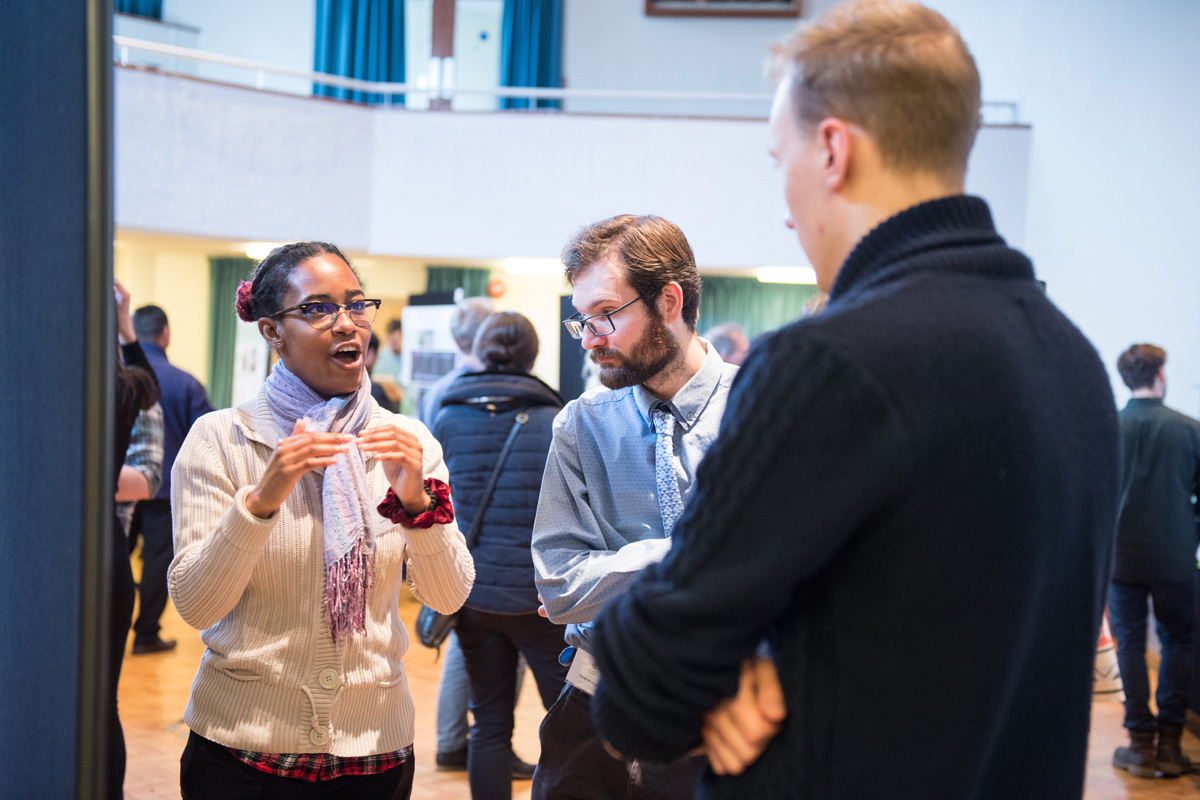The big picture: using wildflower strips for pest control
How many PhD students does it take to change the world? Judging by the commitment and innovation on show last week at Rothamsted Research, you wouldn’t want to lose any single one of them, writes Gary Frewin.
Since its inception, over 10 years ago, the annual Rothamsted Postgraduate Research Symposium has been a highly-valued two-day meeting of early career scientists from across the institute’s four multidisciplinary departments, at its headquarters and on the farm platform at North Wyke.
The students present the work they are doing in Plant Sciences (PS), Biointeractions and Crop Protection (BCP), Sustainable Agriculture Sciences (SAS) and Computational and Analytical Sciences (CAS). They were joined by senior researchers from their departments.
This year, food security emerged as a consistent motivation behind many of the featured projects. Final year PhD student (SAS-NW), Lea Carlesso asked: “What is more important at the moment than feeding the planet and doing it in a sustainable way?”
Thirty-five postgraduates presented their work, each providing a unique window into the next decade of innovation on food security.
In attendance, researchers and students could engage in constructive dialogues and networking to facilitate future strides within the industry, ensuring global challenges are met with innovation.
The event saw scientists working across many different disciplines collaborating to solve problems within agriculture and food security, a strategic priority of Rothamsted Research.
Jamie McFadzean, a final year PhD student (SAS-NW), said: “There isn’t anywhere else in the world where I would be able to do this research.”
The aim of the two-day event is to bring together researchers and PhD students from across the institute to present, share and discuss the projects taking place.
Students are given an ideal opportunity to engage and communicate in the setting of a scientific conference, providing valuable experience for their future careers.
The remarkable range of presentations included ambitious contributions on animal disease, pesticide impact management and genome editing.
“Pollinators are currently threatened. My project aims to develop bee attractors to improve crop pollination," said Sandrine Chaillout, PhD student (BCP).
“We need to farm right,” noted Amy Thomas, final year PhD student (CAS-NW). “If our livestock aren’t healthy then farming isn’t sustainable.”
Guest speaker was Mimi Tanimoto, a specialist in science communication and public engagement, who received her PhD in plant developmental genetics from the University of York.
Tanimoto's talk, “Plant science and beyond: careers in science communication, training and public affairs”, offered students the benefits of her experiences at the Royal Botanic Gardens, Kew and with the UK Plant Sciences Federation. Her lasting advice: “Changing direction isn’t failure.”

Amma Simon on the role that biological control of pests might play in lowering resistance in aphids
Three PhD students won votes from their peers to receive awards.
Laura James (BCP) won the Best Poster Award for her work “UN-BEE-LIEVABLE! The molecular impacts of chronic pesticide exposure on bee learning and memory”.
The Best Mini-presentation and Poster went to Claudia Lowe (BCP) for her project, “Exploring variability in United Kingdom Alopecurus myosuroides populations with non-target-site herbicide resistance”.
“New opportunities to investigate insecticide and acaricide ion channel targets through their differential interactions with novel chemical agonists” by Sofia Iqbal (BCP) won the award for Best Final Year Talk.